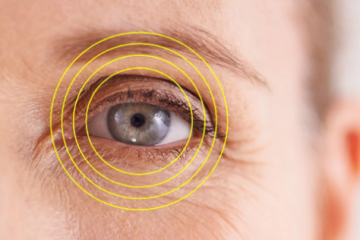Care is more than assistance, it’s about understanding, connection, and respect. Across Australia, home care services are evolving to focus on person-centred support that nurtures both physical and emotional wellbeing.
From specialised health support to social interaction and companionship, today’s care models are designed to empower individuals to live fulfilling, dignified lives in the comfort of their homes. Each service plays a crucial role in ensuring that every person regardless of age, condition, or ability — receives the right kind of care at the right time.
The Heart of Personalised Care
Personalised care begins with listening. Every individual has unique preferences, needs, and aspirations and effective care must adapt to those differences. Whether it’s assistance with medical routines or simple companionship during the day, care professionals are now trained to approach every interaction with empathy and understanding.
This tailored approach ensures that clients maintain independence and choice. It focuses on what people can do rather than what they can’t, empowering them to stay involved in daily decisions and activities that bring joy and meaning.
At its core, personalised care builds confidence and restores a sense of control, essential elements for a happy, balanced life.
Understanding Complex Care
Some individuals live with long-term or multiple medical conditions that require advanced assistance and continuous monitoring. Complex Care is designed to meet these specialised needs, offering comprehensive support that combines clinical knowledge with compassionate service.
This form of care is often coordinated by registered nurses or trained healthcare professionals who manage tasks such as medication administration, mobility support, feeding assistance, or wound management. It ensures that clients with intricate health conditions receive consistent, high-quality care while remaining in their familiar surroundings.
Complex care plans are built collaboratively involving doctors, carers, families, and the individuals themselves ensuring safety, comfort, and dignity every step of the way.
Why Emotional Support Matters as Much as Physical Care
While medical care is essential, emotional wellbeing plays an equally important role in recovery and happiness. Many people living with disabilities or chronic illnesses experience feelings of loneliness, anxiety, or social isolation.
Healthcare providers increasingly recognise that care must address both body and mind. Through empathy, patience, and consistent presence, caregivers create an environment where individuals feel valued and heard.
Emotional support can reduce stress, promote healing, and foster a stronger sense of belonging turning everyday care into a partnership built on trust and understanding.
Companionship Care: Building Connection Through Everyday Moments
For many, loneliness can be one of the most difficult aspects of ageing or living alone. Companionship care focuses on emotional connection offering social interaction, shared activities, and friendship that go far beyond daily assistance.
Companionship carers may help with household tasks, accompany clients on outings, or simply spend quality time talking, reading, or enjoying hobbies together. These moments of connection boost confidence, mental health, and motivation, helping individuals stay active and engaged.
This type of care is about human presence, ensuring that no one feels isolated and that every day includes laughter, conversation, and genuine connection.
Key Benefits of Personalised and Complex Support
- Holistic Wellbeing: Addresses both physical and emotional needs for balanced care.
- Independence: Encourages clients to make choices and maintain autonomy.
- Continuity: Consistent carers build trust and understanding over time.
- Safety and Professional Oversight: Medical expertise ensures reliable care.
- Emotional Strength: Reduces stress and improves mood through companionship.
By combining professionalism with empathy, care transforms from a service into a meaningful relationship that enriches both the giver and receiver.
How Families Benefit from Compassionate Care
Families also gain peace of mind knowing their loved ones are supported by trained professionals. Here’s how compassionate care benefits families:
- Reduced Stress: Carers share responsibilities, easing family pressure.
- Professional Guidance: Access to expert advice for complex health needs.
- Time for Self-Care: Families can rest and recharge while care continues seamlessly.
- Improved Communication: Families stay informed about care progress.
- Long-Term Trust: Confidence grows through reliability and transparency.
When families and care teams work together, support becomes more collaborative and effective benefiting everyone involved.
How Care at Home Promotes Independence
Home is more than a place, it’s where people feel safe, familiar, and at ease. Receiving care at home enables individuals to stay close to their memories, routines, and loved ones while getting the assistance they need.
In-home care preserves independence by allowing people to maintain control over their schedules and daily choices. Whether it’s choosing what to eat, when to rest, or which activities to enjoy, personalised care respects individuality.
By supporting independence, carers help individuals retain dignity and purpose two key pillars of emotional and physical wellbeing.
The Role of Professional Carers
Professional carers are the heart of every successful care plan. They bring compassion, reliability, and skill to every interaction, ensuring that care is safe and meaningful.
Carers undergo specialised training to manage both clinical and emotional aspects of support. Their work involves more than tasks it’s about creating connections, listening with empathy, and understanding what truly makes each person feel valued.
This human-centred approach transforms caregiving from a duty into a partnership rooted in trust and respect.
Integrating Technology Into Home Care
Technology has made it easier to deliver consistent, effective care while maintaining flexibility and convenience. From telehealth consultations to digital monitoring tools, technology complements human compassion with practical solutions.
For example:
- Medication reminders ensure consistent treatment schedules.
- Health tracking devices monitor vital signs and activity levels.
- Video calls enable family communication even when physically apart.
- Digital care plans keep carers and healthcare professionals informed in real-time.
When used responsibly, technology enhances care delivery without replacing the personal touch that defines home-based support.
Supporting Emotional Health Through Companionship
Emotional wellbeing thrives on connection. Regular social interaction helps prevent depression, reduce stress, and promote cognitive function particularly among older adults.
Companionship carers play a key role in keeping clients mentally active and emotionally fulfilled. From sharing meals to engaging in stimulating conversation, these small yet meaningful experiences help individuals rediscover joy in everyday life.
The goal is simple: to make every person feel seen, valued, and genuinely cared for.
The Future of Compassionate Home Care in Australia
As Australia’s population grows older, the need for professional, compassionate home care continues to rise. The future of care lies in integration — blending medical expertise, emotional understanding, and modern technology to deliver holistic solutions.
Providers are investing in training, innovation, and personalised care planning to ensure that individuals receive the highest standard of support possible. This approach goes beyond meeting basic needs it’s about improving lives, one home at a time.
Conclusion
The essence of true care lies in compassion not just attending to physical needs but uplifting the human spirit. From advanced medical assistance to emotional companionship, today’s home care is a partnership built on empathy, professionalism, and trust.
By nurturing both health and happiness, carers help individuals live with dignity, confidence, and connection. This is the future of care one that values people, not conditions, and recognises that wellbeing begins with understanding and kindness.



